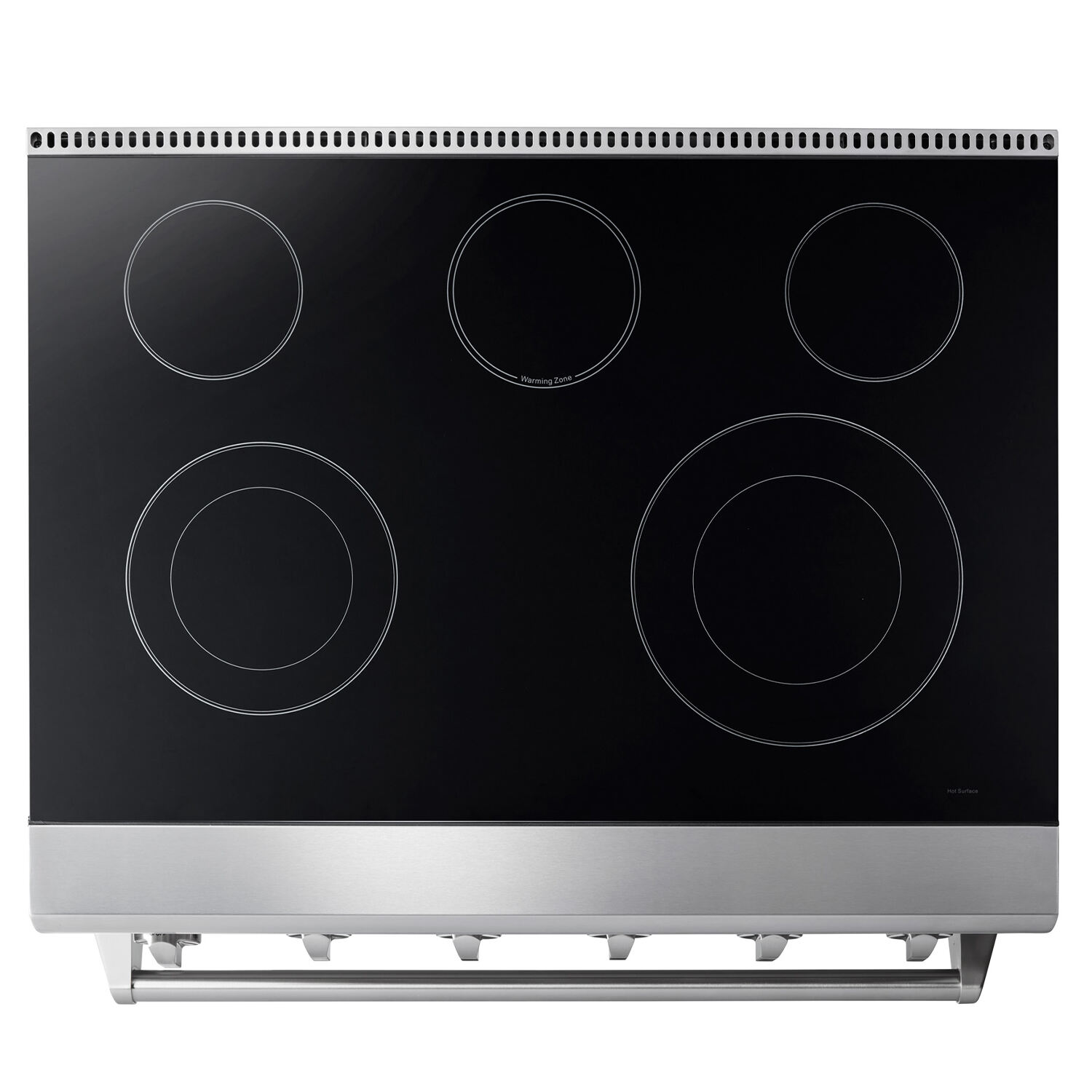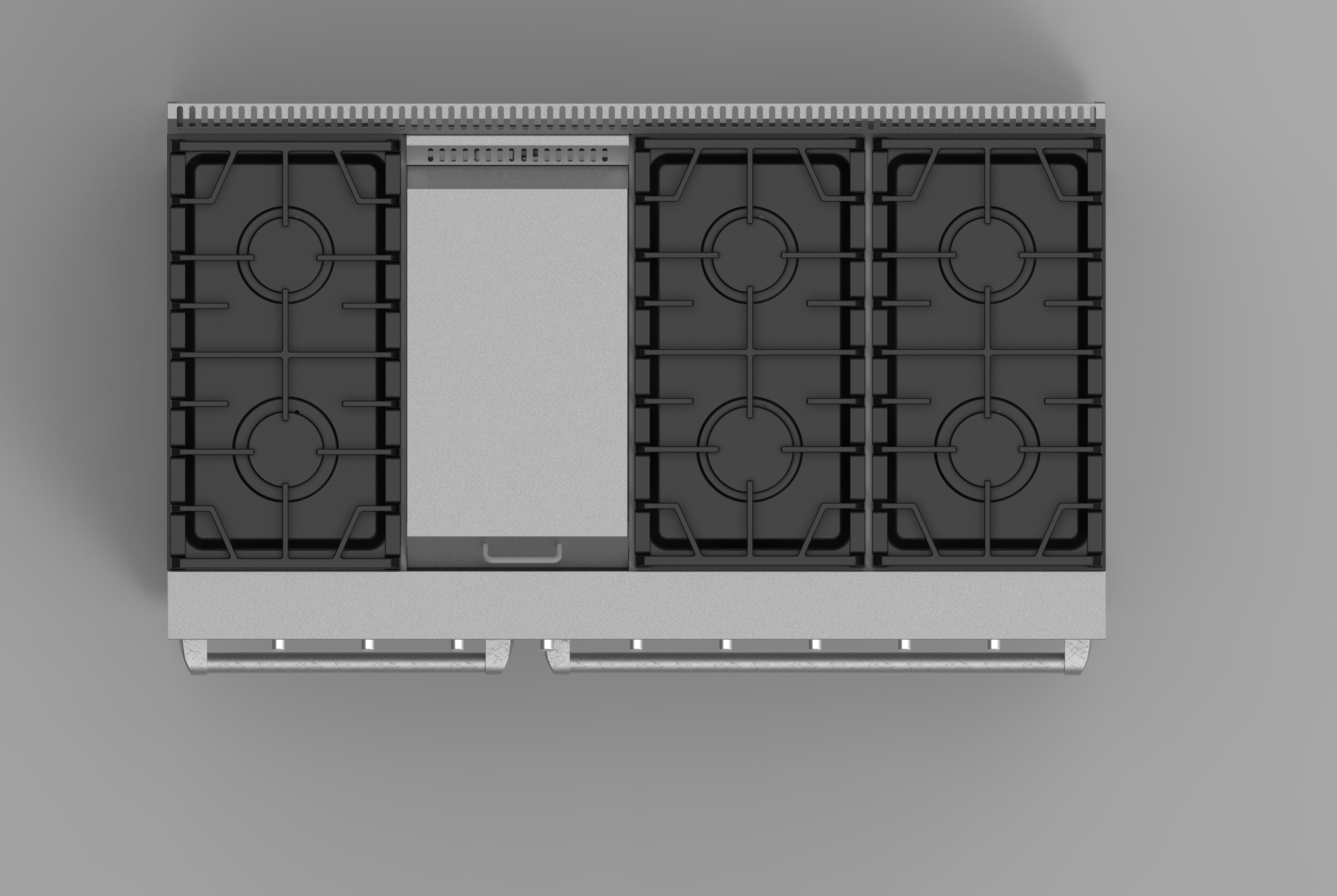Electric Oven vs Gas Oven: How to Make a Wise Choice?
Electric Oven vs Gas Oven: How to Make a Wise Choice?
When choosing a household oven, many people face an important decision: whether to choose an electric oven or a gas oven. This question is not simple because each type has its unique characteristics advantages and disadvantages. To help you make a wise choice, we will delve into the working principles of electric ovens and gas ovens, the factors to consider when purchasing, and their pros and cons. Additionally, we will introduce some high-quality electric oven brands popular in 2024. With our guidance, you will be able to choose the most suitable oven for your kitchen.

A. What is an electric oven?
Electric ovens operate similarly to electric radiators, generating heat through electricity. Within the oven, an element heats up when electricity passes through it. Temperature sensors regulate the heat output, maintaining the selected cooking temperature.
Additionally, many electric ovens feature a fan that circulates heat throughout the oven cavity, ensuring even cooking and quicker cooking times. Unlike gas ovens, electric ovens do not rely on burning fuel, resulting in a more consistent temperature due to the solid heating element. However, they typically take longer to preheat compared to gas ovens.
B. What is a gas oven?
A gas oven is a kitchen appliance that uses natural gas or propane as fuel. Gas ovens heat food radiatively from a burner located inside the oven, releasing small amounts of moisture into the air. Generally, a gas stove combines both an oven and an open-flame gas stove.
Gas ovens create heat by burning natural gas, similar to how a gas boiler works. When the oven is turned on, gas flows in and a small flame or spark ignites it. Modern ovens can ignite the gas automatically, while older ovens require lighting with a match. Adjusting the oven temperature simply controls the gas flow. Gas ovens heat up faster than electric ovens, but the temperature may be less steady and vary in different parts of the oven.

C. The pros and cons of electric ovens and gas ovens.
Benefits of an Electric Oven:
Quick Cooking: Although gas ovens heat up faster, electric ovens tend to offer a quicker cooking experience overall.
Even Heat Distribution: Electric ovens, especially those with fans, distribute heat more evenly. This allows hot air to circulate the oven, cooking food from multiple angles.
Disadvantages of an Electric Oven:
Slow Heating: Electric ovens can take a long time to heat up, potentially extending cooking times by up to 30 minutes.
Difficulty Adjusting Temperature: Electric ovens retain heat for a long time, making it tricky to adjust temperature.
Susceptibility to Power Cuts: Electric ovens are significantly affected by power cuts, causing immediate interruptions in cooking without any alternative.
Advantages of gas oven:
Fast heating: Gas ovens tend to heat very quickly, shortening the time it takes to preheat to the desired temperature, thus speeding up the entire cooking process.
Even heat distribution: Gas ovens provide even heat distribution, which is very useful when cooking different foods at the same time. For example, cook meat on the bottom rack and roast potatoes on the top rack.
Humidity Control: The distribution of heat in a gas oven releases a small amount of moisture to maintain a certain humidity when cooking food, which helps prevent food from drying out.
High oven space utilization: Gas ovens have no fans, so the space inside the oven can be more fully utilized, making it easier to cook multiple dishes at the same time.
Gas is cheaper: Cooking with gas is generally cheaper than using an electric oven, which can save you money on cooking costs.
Disadvantages of gas ovens:
Installation Requires Professional Skills: Installation of a gas oven is a professional skill and can present significant safety hazards if performed by untrained amateurs. Therefore, you will need to have your gas oven installed safely by a qualified gas professional, which usually comes at a cost.
Uneven heat distribution: Gas ovens typically do not have fans, which can cause heat to be unevenly distributed inside the oven. While this can produce different results for cooking different foods, it can also lead to inconsistent baking results, requiring adjustments to the grill position to achieve the same results.
Insufficient humidity control: Because the heat generated by a gas oven releases a small amount of moisture, a certain humidity is maintained when cooking food, but this humidity control may not be sufficient for some cooking needs, especially when precise humidity control is required.
D. What factors should be considered when purchasing an oven?
Cooking needs: First consider your cooking needs, including baking, roasting, grilling smoking, etc. Different types of ovens may have different functions and applicability, and choosing an oven that suits your daily cooking needs is key.
Oven type: There are two types of ovens: gas ovens and electric ovens. You need to choose the right type based on your kitchen conditions, gas supply, and personal preference.
Size and Capacity: Consider your kitchen space and the size of your home to choose the right oven size and capacity. If you frequently need to bake large amounts of food or frequently cook multiple dishes at the same time, then a larger-capacity oven may be more suitable for you.
Functions and Features: Ovens may have different functions and features such as preset programs, smart controls, grill adjustments, etc. Choose the functionality and features that fit your needs and budget.
Energy efficiency: Consider the energy efficiency of your oven and choosing an oven that saves energy can help reduce energy consumption and save money.
Brand and quality: Choose an oven from a well-known brand and a good reputation, and you can usually get better quality and after-sales service guarantee.
E. What are the high-quality electric oven brands in 2024?
Bosch: Bosch electric ovens are known for their high-quality manufacturing and innovative technology, delivering reliable performance and durability.
KitchenAid: KitchenAid electric ovens generally feature stylish looks and exquisite craftsmanship, while providing excellent cooking performance and convenient use.
GE Appliances: Known for their superior quality and advanced technology, GE Appliances electric ovens offer versatile features and reliable performance.
Whirlpool: Whirlpool toaster ovens offer durability and stability and are often considered a cost-effective option while offering a variety of useful features.
Samsung: Samsung electric ovens typically feature stylish designs and advanced technology, offering smart features and convenient controls.
LG: LG electric ovens are known for their innovative designs and advanced features, providing an efficient cooking experience and convenient use.
Electrolux: Electrolux electric ovens typically feature sophisticated designs and premium performance, providing users with an efficient cooking experience.
Frigidaire: Frigidaire electric ovens are favored for their consistent performance and durable quality and are often considered the choice for both practicality and reliability.
Miele: Miele electric ovens focus on quality and craftsmanship, providing high-end design and excellent cooking functions, as well as long service life.
Wolf: Wolf electric ovens are known for their professional-level performance and durability, providing users with a top-notch cooking experience and long-lasting quality assurance.
F. Professional oven manufacturers give you the right advice
As an oven manufacturing factory with more than ten years of manufacturing experience, Hyxion manufactures OEM products for many oven brands. We bring you some simple suggestions:
Determine your needs: First, you must clarify your cooking needs and preferences, including baking, roasting, grilling smoking, etc. This will help you choose the type and features of an electric oven that is right for you.
Understand the brand: Be familiar with the characteristics and reputation of different brands, and choose well-known brands and reputable manufacturers to ensure product quality and after-sales service.
Consider your budget: Choose an electric oven with a suitable price/performance ratio based on your budget range. You don’t have to choose the most expensive product but don’t try to buy a high-quality product at a low price.
Read reviews and reviews: Before purchasing, you can read reviews and reviews from other users to understand the product’s experience and performance so you can make a more informed choice.
Pay attention to functions and features: Choose an electric oven with the right functions and features based on your needs and preferences, such as preset programs, smart controls, grill adjustments, etc.
Confirm the size and capacity: According to your kitchen space and family size, choose the appropriate size and capacity of the electric oven to ensure that it can meet your daily cooking needs.
Pay attention to energy efficiency: Consider the energy consumption of the electric oven and choose products that can save energy, which will help reduce usage costs and protect the environment and energy conservation.
Keep an open mind: Keep an open mind when purchasing. Don’t limit yourself to a certain brand or model. Only by comparing and learning more can you find the electric oven that suits you best.

 EN
EN
 AR
AR
 BG
BG
 HR
HR
 CS
CS
 DA
DA
 NL
NL
 FI
FI
 FR
FR
 DE
DE
 EL
EL
 IT
IT
 JA
JA
 KO
KO
 NO
NO
 PL
PL
 PT
PT
 RO
RO
 RU
RU
 ES
ES
 SV
SV
 TL
TL
 IW
IW
 ID
ID
 LV
LV
 LT
LT
 SR
SR
 SL
SL
 SQ
SQ
 HU
HU
 MT
MT
 TH
TH
 TR
TR
 FA
FA
 MS
MS
 GA
GA
 IS
IS
 HY
HY
 AZ
AZ
 KA
KA
